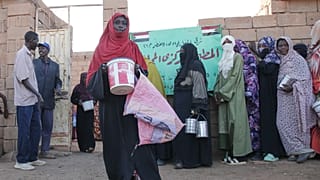Agriculture
A new UN report says young people across the globe could be critical agents of change for the future of food security, economic growth, and climate resilience. But coordinated global action is needed to unlock their potential.
Bridging the employment gap for youth in agriculture could increase the global economy by 1.4 percent with a benefit by accounting for about 1.5 trillion US dollars, according to the new report of the Food and Agriculture Organization of the United Nations (FAO).
With 1.3 billion individuals aged 15 to 24 globally, and with nearly 85 percent of global youth today living in low- and lower-middle-income countries, “The Status of Youth in Agrifood Systems” report examines and emphasizes the crucial role of youth in transforming agrifood systems to improve food security, nutrition, and economic opportunities.
The report notes that over 20 percent of youth are not in employment, education, or training (NEET), with young women twice as likely to fall into this category. Eliminating youth unemployment and providing employment opportunities for youth aged 20 to 24 years old and that are not in employment, education or training could boost global gross domestic product by 1.4 percent, equal to USD 1.5 trillion in additional value-added activity, with about 45 percent of that increase stemming from agrifood systems.
Globally, 44 percent of working youth rely on agrifood systems for employment compared to 38 percent for working adults. However, that global average covers a large span ranging from 82 percent in protracted crisis agrifood systems to just 23 percent in industrial agrifood systems. Alarmingly, food insecurity among youth has risen from 16.7 percent to 24.4 percent between 2014-16 and 2021-23, especially affecting young people in Africa.
Climate shocks
Climate extreme events and shocks pose a significant threat, with an estimated 395 million rural youth living in locations expected to experience declines in agricultural productivity, particularly in traditional agrifood systems and sub-Saharan Africa.The report delves into technical and policy initiatives designed to create decent job opportunities, enhance food security and nutrition, and enhance the resilience of young people to shocks. It highlights youth as key change agents in the agricultural sector, positioning them as the next generation of producers, processors, service providers, and consumers. They will confront a wide range of challenges, including increasing food production for a growing population, replacing an aging workforce, and adapting to the impacts of the climate crisis, water scarcity, and urbanization.
The report provides detailed data on youth demographics, indicating that 54 percent live in urban areas, with the highest concentrations in Eastern Asia. In contrast, rural youth account for only 5 percent of the population in industrial agrifood systems, signaling potential labor shortages if agricultural careers are not made more attractive. Many rural youths reside in areas with high agricultural productivity potential, presenting significant investment opportunities in market access and infrastructure.
To empower youth, the report advocates for interventions that enhance their voice and agency, improve access to training and resources, and boost productivity both on and off the farm. It also highlights the need for increased social protection programs, especially given youth's limited access to traditional financing.
Inquire, Include, Invest
To address the challenges and seize the opportunities, the report emphasizes three main strategies: bridge knowledge and data gaps and strengthen the evidence for youth-inclusive agrifood systems (Inquire more); amplify the voices of diverse youth in policy and decision-making processes (Include more); and drive targeted investments to expand economic opportunities for youth and empower them (Invest more).
Adopting these strategies will require, expanding economic opportunities, investing in modernization, facilitating access to resources, promoting orderly youth migration by supporting safe and youth-responsive migration pathways to address labor shortages, and enhancing digital access.











11:19
Can IFAD’s “First Mile” revolution secure Africa’s food future?{Business Africa}
01:01
South Africa produces first local vaccine to combat foot-and-mouth disease
01:00
Senegal surf school in Dakar brings girls back to class
11:16
Tanzania eyes East Africa’s pharmaceutical hub crown {Business Africa}
01:02
Over one million Nigerians face hunger due to funding shortages
01:05
Algeria's president urges youth living abroad illegally to come home